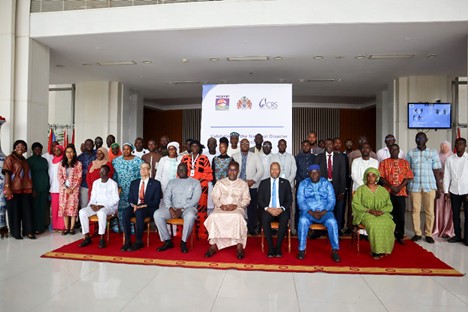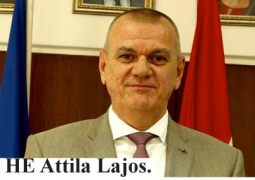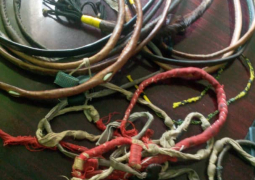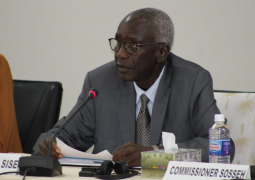
Strategic Alignment with National Development Goals
The NDRMP is firmly anchored on the Recovery Focused-National Development Plan (RF-NDP) 2023-2027 and aims to drive inclusive growth, accelerate green transformation, and build resilience to shocks and crisis. The plan also fulfills The Gambia's commitments under the Sendai Framework for Disaster Risk Reduction, the Sustainable Development Goals, and the African Union's Agenda 2063.
Presiding over the event, the Vice President, His Excellency Mohammed B. S. Jallow described the plan as a “national roadmap to safeguard lives, livelihoods, and the environment while laying the foundation for a resilient and sustainable future.”
He praised Catholic Relief Services (CRS) for its technical and financial support in developing the plan, commending the organisation as “a trusted and longstanding partner that continues to demonstrate solidarity in times of difficulty.”
Vice President Jallow noted that the new plan is anchored in The Gambia’s Recovery-Focused National Development Plan (RF-NDP 2023–2027) and aligns with global commitments such as the Sendai Framework, the Sustainable Development Goals (SDGs), and Africa’s Agenda 2063.
“It will operationalize our national priorities by strengthening disaster preparedness, embedding risk-informed planning into agriculture, infrastructure, and environmental management, and ensuring that our most vulnerable citizens are at the center of disaster risk reduction,” he said.
VP Jallow reaffirmed that government has already taken steps to demonstrate leadership in this area, citing ongoing investments in flood control and coastal protection. He highlighted projects such as the West Africa Coastal Areas Resilience Project and drainage improvement works in the Greater Banjul Area, which aim to reduce the impacts of flooding and erosion.
He also referenced the recently adopted National Disaster Risk Management Policy and increased budgetary allocations for capital projects that enhance preparedness and reduce vulnerabilities.
The Vice President urged participants to engage constructively in the validation process to ensure that “the final version reflects the realities of disaster risk in The Gambia; our vulnerabilities, capacities, and aspirations.”
He concluded by calling on development partners, civil society, and the private sector to support the implementation of the plan, warning that “the costs of inaction are far greater than the costs of preparedness.”
In his remarks, Mr. Sanna Dahaba, Executive Director of the NDMA, emphasised that the NDRMP represents a strategic framework that shifts The Gambia’s disaster management approach “from a culture of reaction to a culture of prevention, preparedness, and resilience.”
He said the validation process ensures inclusivity by giving stakeholders from national policymakers to rural communities the opportunity to contribute to a plan that reflects local realities.“Our communities are not just vulnerable; they are sources of strength and solutions,” the NDMA head noted, adding that “validation must be followed by action in budgeting, in policy, and in empowering our people, especially the most vulnerable.
For his part, Regional Director for Central and West Africa, Dr. Jude Marie Banatte informed the participants that since 1964, CRS in The Gambia has grown from emergency food relief to broader work in agriculture, health, education, and disaster management. These interventions, he said are more important than ever, as The Gambia faces floods, windstorms, droughts, and rising sea levels.
Our progress, he noted is possible thanks to the Government of The Gambia, their donors, partners, and dedicated staff. “Strengthening local leadership and institutional capacity is central to our mission. We empower local partners and NGOs to improve systems, planning and policy, increasing their voice and influence within the humanitarian sector.
Read Other Articles In Headlines





